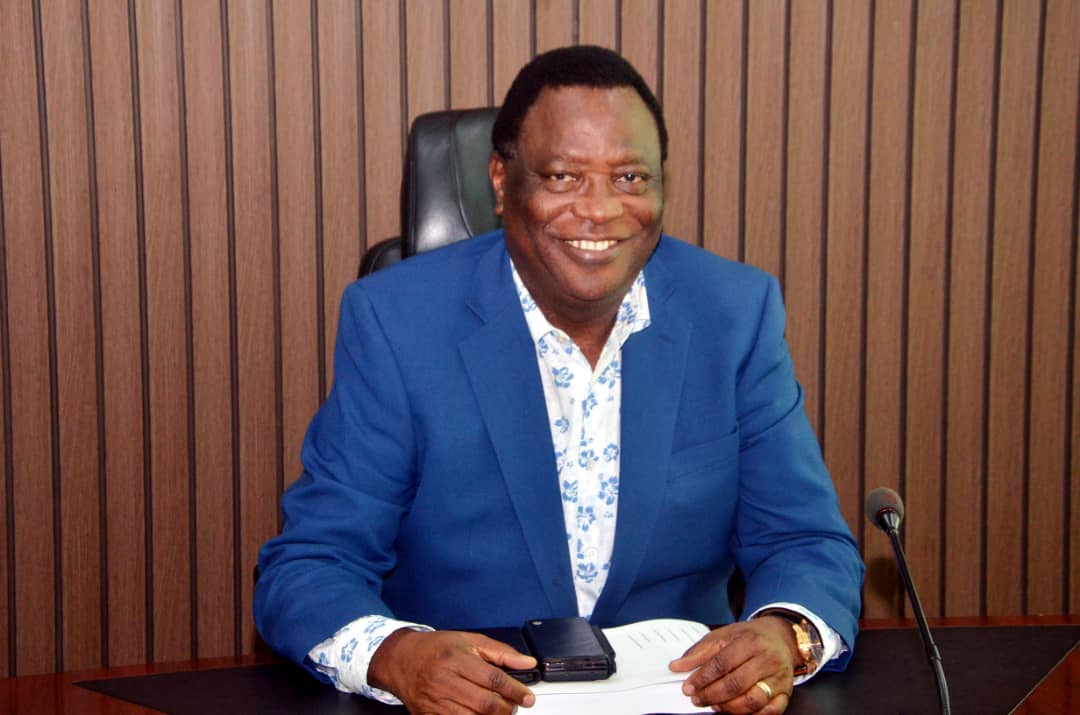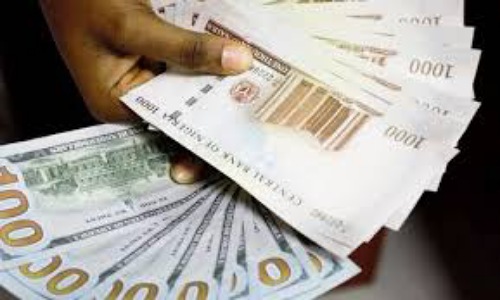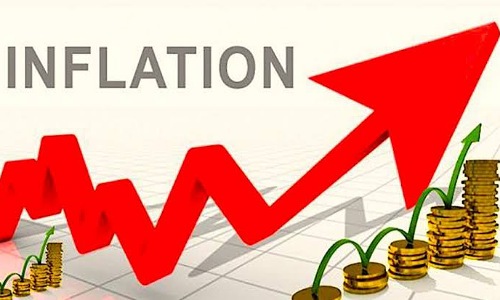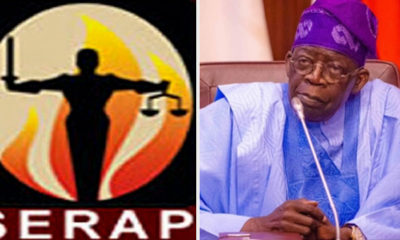Business
Oil Sector’s Executive Orders: NCDMB Lauds President Tinubu

President Bola Ahmed Tinubu’s Executive Orders aimed at incentivizing the Nigerian oil and gas industry, encouraging new investments in the sector, reducing contracting costs and timelines, and promoting cost efficiency in local content requirements have been applauded.
The Executive Secretary of the Nigerian Content Development and Monitoring Board (NCDMB), Engr. Felix Omatsola Ogbe has commended the President’s strategic intervention.
This was detailed in a statement by the Corporate Communication of the NCDMB, which was made available to the Biztellers.
According to the statement, the Executive Orders are the Oil and Gas Companies (Tax Incentives, Exemption, Remission, ETC) Order 2024; Presidential Directive on Local Content Compliance Requirements, 2024 (EO 41); and Presidential Directive on Reduction of Petroleum Sector Contracting Costs and Timelines, 2024 (EO 42).
The ES bared his mind in Yenagoa, Bayelsa State, where he opined that the policy directives had reinforced the implementation of the Nigerian Oil and Gas Industry Content Development (NOGICD) Act and codified the Service Level Agreements (SLA), which the NCDMB first introduced in May 2017 to fast-track approvals for the Nigeria LNG Limited Train 7 project, before expanding it to the entire industry after signing a Memorandum of Understanding (MoU) with the Nigerian National Petroleum Company Limited (NNPC Ltd) and five international oil-
producing companies in September 2023.
He maintained that the Presidential Executive Orders did not whittle down the powers of the NCDMB or abrogate the schedule of the NOGICD Act.
Instead, according to him, the Executive Order 41 mandates the Board to ensure the patronage of local companies with domiciled proven capacities and capabilities to achieve cost competitiveness and project delivery within schedule.
He equally pointed out that Executive Order 42 reemphasized NCDMB’s obligation to fast-track approval processes as required by the SLA and section 23 of the NOGICD Act, which mandates the Board to review projects’ documentation within 10 days and advise the concerned operating company.
He assured that the Board would comply with the terms of the Presidential Executive Orders, insisting that the Board had always been pragmatic with its implementation of the NOGICD Act and mindful of the cost competitiveness of projects and schedules.
The objectives of the Executive Orders and the SLAs, he observed were directed to shorten the oil industry’s contracting cycle to six months or less, engender speedy development of new projects, contribute to increased oil production, and improve the national economy, expressing delight that President Tinubu had put his stamp of authority on the noble objectives of the SLAs.
He commended Mr. President for acknowledging the giant strides recorded in Nigerian Content development, particularly the impressive capacities built by local oil and gas service companies in key areas of the industry and the substantial benefits that had accrued to the Nigerian economy and her citizens through local content implementation.
The NCDMB boss assured that the agency would continue to serve as a business enabler and maintain the recognition conferred by the Presidential Enabling Business Environment Council (PEBEC), which awarded the Board the most efficient agency amongst all Federal Government’s MDAs in 2022 and the PLATINUM rating by the Bureau for Public Service Reforms in recognition of the self-imposed reforms of Board’s processes.
Business
Again, Dangote Crashes Diesel, Aviation Fuel Prices To N940, N980 Respectively

It appears the Nigerian economy would not have to wait for long to reap the benefits of local production of refined petroleum products, with fall in prices witnessed thrice in less than four weeks.
Biztellers reports that the Dangote Petroleum Refinery has again reduced the prices of both diesel and aviation fuel to N940, N980 per litre respectively.
This is coming in the wake of its widely celebrated price reduction to N1,000 barely two weeks ago.
The company disclosed in a statement on Tuesday that the price change of N940 applies to customers buying five million litres and above from the refinery, while the price of N970 is for customers buying one million litres and above.
On the new development, the Head of Communication, Dangote Group, Anthony Chiejina, explained that the new price is in consonance with the company’s commitment to cushion the effect of economic hardship in Nigeria.
He said, “I can confirm to you that Dangote Petroleum Refinery has entered a strategic partnership with MRS Oil and Gas stations, to ensure that consumers get to buy fuel at affordable price, in all their stations be it Lagos or Maiduguri. You can buy as low as 1 litre of diesel at N1,050 and aviation fuel at N980 at all major airports where MRS operates.”
This strategic partnership would be extended to other major oil marketers, Chiejine asserted.
“The essence of this is to ensure that retail buyers do not buy at exorbitant prices.
“The Dangote Group is committed to ensuring that Nigerians have a better welfare and as such, we are happy to announce these new prices and hope that they would go a long way to cushion the effect of economic challenges in the country,” he said.
Recall that the management of the Dangote Petroleum Refinery announced a further reduction of the price of diesel from 1200 to 1,000 Naira per litre barely two weeks ago.
Biztellers reports that this marks the third major reduction in diesel price in less than three weeks when the product sold at N1,700 to N1,200 and also a further reduction to N1,000 and now N940 for diesel and N980 for aviation fuel per litre.
President Bola Ahmed Tinubu had commended Dangote for the initial price reduction, describing it as an “enterprising feat.”
Reacting to the latest development, the Director General of the Manufacturers Association of Nigeria (MAN), Ajayi Kadiri, said that “The decision of Dangote Refinery to first crash the price from about N1,750/litre to N1,200/litre, N1,000/litre and now N940 is an eloquent demonstration of the capacity of local industries to positively impact the fortunes of the national economy.”
He added that “The trickledown effect of this singular intervention promises to change the dynamics in the energy cost equation of the country, in the midst of inadequate and rising cost of electricity.
“The reduction will have far-reaching effects in critical sectors like industrial operations, transportation, logistics, and agriculture, contributing to easing the high inflation rate in the country; a lot of companies will be back in operation.”
Business
Naira Soars, Attains 5-Month Peak Against Dollar

The Naira surged against the US Dollar, surpassing key resistance levels to trade below N1,000 in certain segments of the black market by late Sunday.
This uptrend corresponds with earlier forecasts from Goldman Sachs and occurs amidst increased global geopolitical tensions.
Economists from the American investment bank, Goldman Sachs observed that “The Naira’s current bullish momentum is projected to persist, potentially pushing the exchange rate below N1000 per US dollar in the upcoming months.”
The recent appreciation in the Naira follows a period of volatility marked by significant devaluations since last June. Measures undertaken by Nigerian financial authorities, such as successive interest rate hikes currently at 24.75% and strategic interventions in the foreign exchange market, have notably aided in stabilizing the currency.
A spokesperson from the Central Bank of Nigeria (CBN) emphasized the pivotal role of the CBN’s assertive monetary policy adjustments and the implementation of new market strategies in facilitating the Naira’s recovery from previous setbacks during the latest Monetary Policy Committee (MPC) meeting.
The geopolitical landscape has played a role in market dynamics as well.
Following the recent Iranian strike on Israel, there was an initial flight to safety, which bolstered the US dollar against other currencies.
However, the dollar later stabilized as Israeli ministers indicated no immediate plans for retaliation, easing some market apprehensions.
In March, Goldman Sachs revised its forecast, anticipating the Naira to strengthen to N1200 per dollar by 2024. The firm attributed this optimistic outlook to increased capital inflows and a series of policy initiatives aimed at stabilizing the foreign exchange market.
Finance Minister Wale Edun unveiled plans to boost US dollar inflows, including the sale of foreign currency bonds in the second quarter.
This initiative is part of broader efforts to attract overseas capital through high-yield short-term debt products.
Despite the Naira’s rally and efforts to increase economic inflows, Nigeria’s gross foreign reserves have declined, even amidst rising global commodity prices, especially crude oil.
Nigerian oil grades are presently trading at a premium over the ICE Brent benchmark, which might help counterbalance the adverse fiscal effects of decreased production volumes.
An industry analyst noted, “The ongoing geopolitical unrest in the Middle East and the anticipation of further instability have had significant ripple effects on global markets, impacting commodity prices and currency valuations alike.”
Business
Inflation Surges To 33.20% – NBS

The latest data from the National Bureau of Statistics paints a concerning picture for consumers as the inflation rate surged by 33.20% in March.
This revelation comes from the just-released CPI and Inflation Report for March 2024. Compared to February’s figure of 31.70%, the headline inflation rate saw a notable 1.50% uptick.
Year-on-year, the headline inflation rate rose by 11.16% points compared to March 2023, reaching 22.04%.
This indicates a notable uptick in inflation for March 2024 compared to the same period last year.
The NBS said: “In March 2024, the headline inflation rate increased to 33.20% relative to the February 2024 headline inflation rate which was 31.70%. Looking at the movement, the March 2024 headline inflation rate showed an increase of 1.50% points when compared to the February 2024 headline inflation rate.
“On a year-on-year basis, the headline inflation rate was 11.16% points higher compared to the rate recorded in March 2023, which was 22.04%. This shows that the headline inflation rate (year-on-year basis) increased in the month of March 2024 when compared to the same month in the preceding year (i.e., March 2023).
“Furthermore, on a month-on-month basis, the headline inflation rate in March 2024 was 3.02%, which was 0.10% lower than the rate recorded in February 2024 (3.12%).
“This means that in the month of March 2024, the rate of increase in the average price level is less than the rate of increase in the average price level in February 2024”.
















